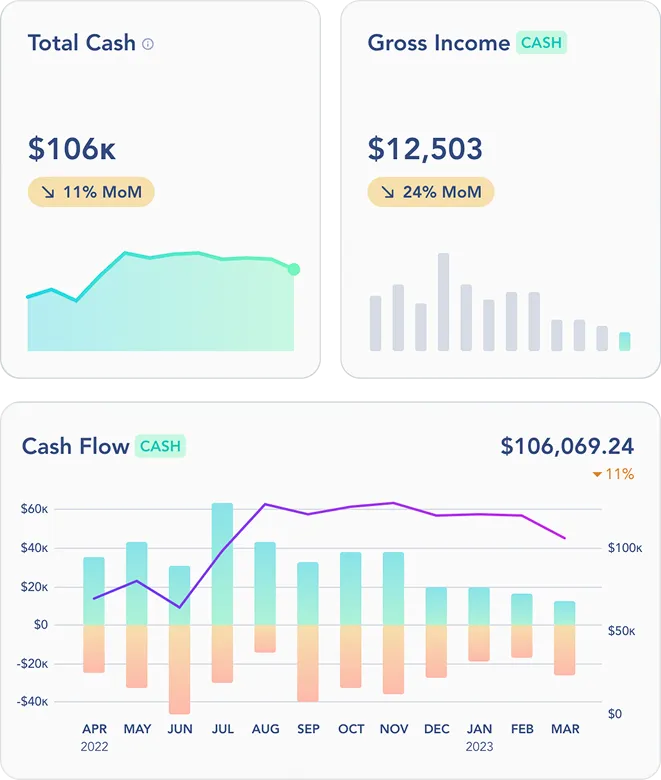
Startup Taxes Explained: The Most Overlooked Tax Benefits for Early-Stage Companies
 Greg O'Brien CPA
Greg O'Brien CPA
Let's bust a common startup myth: “We're not profitable, so we don't need to think about taxes.”
But here's what most people miss — some of the most lucrative provisions in the tax code were written specifically for startups that may not be profitable yet.
For founders like you, understanding and leveraging these tax opportunities isn't just about compliance — it's crucial for maximizing cash flow, minimizing liabilities, and ultimately growing your company using government incentives. Whether you're in the early stages of product development or preparing for a successful exit, strategic tax planning can put significant money back into your business.
As a CPA working with startups, I'll show you exactly how to take advantage of these opportunities and avoid leaving money on the table.
1. The Research and Development (R&D) tax credit
The R&D tax credit is a government incentive that reduces your taxes dollar-for-dollar when you invest in developing new products, making existing ones better, or creating new technology.
It's one of the most valuable tax breaks available for innovative startups, yet many founders forget to take advantage of it. If you're developing new products, improving software, or creating better processes, there's a chance you qualify.
What qualifies as R&D?
You can qualify for the R&D credit if your research activities meet these four requirements:
- Qualified purpose: Your research aims to create new or improved business components (products, processes, techniques, formulas, inventions, or software).
- Elimination of uncertainty: You're trying to eliminate technical uncertainty about how to develop or improve the business component.
- Process of experimentation: Your work involves a process of experimentation (testing hypotheses or trial and error).
- Technological in nature: The research involves the hard sciences, such as engineering, computer science, biology, or physics.
Startups often don’t realize that even routine product development, software programming, or testing qualifies for this credit. For example, a SaaS company improving its platform or automating internal processes could potentially claim the credit and save on their tax bills.
Startups and Payroll Tax Offset
Even if your startup is not yet profitable, you can still benefit from the R&D credit.
If your startup is in its first five years and has less than $5 million in gross receipts, the R&D credit can be used to offset up to $250,000 of payroll taxes per year. This allows early-stage companies to improve cash flow without needing to show taxable income.
2. Qualified Small Business Stock (QSBS) under IRC 1202
IRC 1202 (QSBS) lets founders and investors exclude up to 100% of their capital gains when they sell their stock in a qualified small business.
Here’s what you need to know to ensure you’ll qualify for QSBS exclusions.
Key requirements for QSBS
If you want to take advantage of the QSBS exclusion, your business must meet these three requirements:
- C Corporation status: Your company must be structured as a C corporation. Startups organized as LLCs or S Corporations will not qualify for QSBS benefits. If your startup is currently an LLC, you might want to think about converting to a C corporation sooner rather than later. However, be aware that the holding period for QSBS starts upon conversion, not from the original date of the LLC formation.
- Gross asset limitation: Your company’s gross assets must not exceed $50 million at the time the QSBS stock is issued. This can become an issue if your company’s valuation grows quickly or if large capital raises push you over the limit. It’s critical to monitor the company’s asset base, especially when bringing in investors.
- Active business requirement: Your company must be actively engaged in business, with 80% of assets used in an active trade or business. Certain industries, like real estate, finance, law, and professional services, are excluded from QSBS eligibility.
The exclusion details
Depending on when the stock was acquired, IRC 1202 allows founders to exclude different percentages of capital gains from taxation:
- 50% exclusion for QSBS acquired before February 18, 2009.
- 75% exclusion for QSBS acquired between February 18, 2009, and September 27, 2010.
- 100% exclusion for QSBS acquired after September 27, 2010.
Fortunately, most founders today will qualify for the 100% exclusion, meaning up to $10 million in gains (or 10 times your cost basis) could be entirely free from federal taxes. For example, if you invested $1 million in your startup and sold your shares for $15 million after five years, you could potentially exclude all of these gains from federal taxation.
3. Basic corporate tax deductions
Even in the early stages of your startup, you can benefit from several key tax deductions that put money back into your business. Here are the essential deductions every founder should know about:
Ordinary business expenses
The IRS allows companies to deduct “ordinary and necessary” expenses incurred in operating your business. These include costs like:
- Salaries and wages for employees or contractor fees.
- Office rent and utilities.
- Marketing and advertising expenses.
- Professional services like legal and accounting fees.
- Software and technology subscriptions that are critical to your business operations.
Remember to document these business expenses carefully. Good record-keeping today means smoother tax filings, easier fundraising, and fewer headaches down the road.
Section 179 and accelerated depreciation
If your business purchases equipment like computers, furniture, or machinery, you may be able to deduct their full cost under Section 179 in the year the asset is placed into service, up to a certain limit.
You may also qualify for Bonus Depreciation under IRC 168K. Generally, your tax advisor will compute both and help you decide which is most beneficial.
These “noncash” expenses can drastically accelerate losses or offset grant income in your early years.
Pro tip: Plan your major equipment purchases strategically — smart timing can make a significant difference in your tax savings and cash flow. Just make sure to discuss your planned purchases with your tax advisor before making any big moves.
4. Net Operating Losses (NOLs)
Most startups operate at a loss in their early years — you're spending big on development, marketing, and operations while building toward profitability. The good news is these losses can actually work in your favor. Working with your tax strategist early helps ensure you're maximizing these losses strategically.
How do NOLs work?
When your startup’s expenses exceed its income, you generate a net operating loss (NOL).
These losses are carried forward indefinitely to offset your future taxable income by up to 80%. This means that once your startup becomes profitable, you can use those prior-year losses to save on future tax bills.
For example, let's say your startup has a $200,000 loss in its first year, breaks even in year two, and then generates $300,000 in taxable income in year three. When you file taxes for that profitable third year, you can apply your first year's losses (your NOL carryforward) against the third year's income to reduce your tax bill.
5. State income tax nexus
Having employees or sales in multiple states can make your tax situation even more complicated — this is called state income tax nexus. Even if you're primarily operating from one location, your remote team members, online sales, or cross-state services might require you to pay taxes in other states.
Nexus can be triggered in two ways: through physical presence or economic activity:
- Physical Nexus: This is the more traditional view of nexus. In this instance, nexus is created when you have a physical presence in a state, such as employees, offices, or inventory.
- Economic Nexus: This is the newer concept of nexus. In this case, nexus is triggered solely by your sales volume in a state — even without any physical presence there. For example, if your company sells more than $100,000 of products or services to customers in a particular state, you may have to pay taxes there.
Sales tax considerations
In addition to income tax, your company may also be required to collect and remit sales tax in states where you have nexus. This can complicate tax compliance for online sellers, SaaS companies, and e-commerce businesses.
Each state has its own limits for triggering economic nexus. For this reason, you should keep track of where your sales are happening and whether they cross those thresholds.
Suggested Action Item: As your startup scales, work with a tax advisor to monitor your potential nexus in various states. Many founders miss this until it's too late — uncovering state tax issues during due diligence can delay your acquisition or reduce your sale price.
Don't navigate startup taxes alone
Startups have unique tax advantages built specifically for companies like yours. When leveraged properly, these opportunities - from R&D credits to tax-free exits through QSBS - can put significant money back into growing your business.
The government has created dozens of provisions specifically to help innovative startups like yours succeed. Don't leave this money on the table.
Ready to maximize your startup's tax strategy? Schedule a call with Digits today to see how our tax professionals can help your company maximize its savings come tax time.


